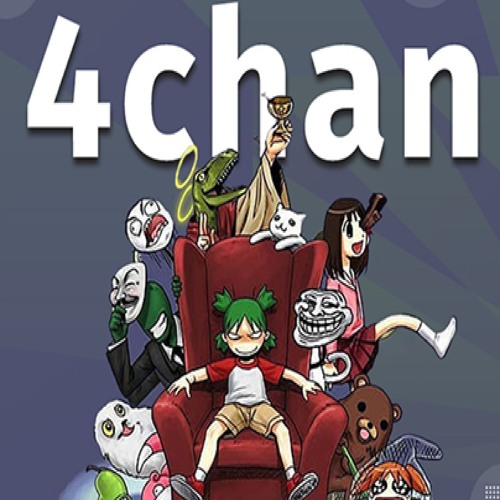Few corners of the internet are as infamous, influential, and utterly confounding as 4chan. Launched in 2003, this anonymous imageboard website has served as both a wellspring of digital creativity and a hotbed of controversy. It’s a place where internet memes are born, online movements are forged, and the boundaries of acceptable online discourse are constantly tested.
If you’ve ever wondered about the origins of some of the internet’s most pervasive memes or the anonymous collective “Anonymous,” understanding 4chan is a crucial first step.
What is 4chan? A Glimpse into Anarchy and Anonymity

At its core, 4chan is a simple imageboard website where users can post comments and share images, typically without any registration or identifiable username. This pervasive anonymity is its defining characteristic and a key factor in shaping its unique culture.
The site is divided into various “boards,” each dedicated to a specific topic, ranging from relatively innocuous subjects like anime, video games, and cooking to more extreme and often offensive content. Some of its most well-known boards include:
- /b/ (Random): This is arguably the most infamous board, often described as having minimal rules (except for illegal content like child pornography) and an “anything-goes” philosophy. It’s a chaotic space known for its raw humor, shock content, and unpredictable nature. Many early internet memes originated here.
- /pol/ (Politically Incorrect): This board is dedicated to political discussion and has gained notoriety as a hub for far-right rhetoric, conspiracy theories (like QAnon), and often hate speech.
- /v/ (Video Games): A popular board for discussions about video games.
Key features that define 4chan:
- Anonymity: Users typically post as “Anonymous,” fostering a sense of collective identity and reducing personal accountability. While IP addresses are tracked and bans occur for rule violations, the frontend experience is anonymous.
- Ephemerality: Threads on 4chan are constantly “bumped” to the top with new replies. Older, inactive threads are systematically deleted, leading to a highly fluid and ephemeral content stream. This means content rarely stays on the site for long.
- Image-centric: As an imageboard, images are central to discussions, often accompanying text posts.
- Minimal Moderation: While rules exist (especially against illegal content like child sexual abuse material), the moderation on many boards, particularly /b/, is notoriously lax compared to mainstream platforms. This has led to the proliferation of offensive, extremist, and often illegal content.
The Story Behind 4chan: From Japanese Roots to Global Phenomenon

4chan was founded on October 1, 2003, by a then 15-year-old American named Christopher “moot” Poole. The inspiration for 4chan came directly from 2channel (2ch) and Futaba Channel (2chan), popular Japanese anonymous imageboards. Poole aimed to create an English-language counterpart, initially focusing on anime and manga discussions, mirroring its Japanese predecessors. He even used translated open-source code from 2chan to build the site.
Key milestones in 4chan’s history:
- Early Days (2003-2008): Starting with just a couple of boards, 4chan quickly gained traction, particularly among early internet subcultures. Its anonymous nature and loose moderation attracted users seeking a less restricted environment than traditional forums. This era saw the birth of countless internet memes that would later go viral, such as “lolcats” and “Rickrolling.”
- The Rise of Anonymous (Mid-2000s): The collective “Anonymous,” a decentralized hacktivist group, largely originated from 4chan’s /b/ board. They gained prominence through various online pranks and later organized real-world protests, notably “Project Chanology” against the Church of Scientology.
- Financial Struggles & Ownership Change (Late 2000s – 2015): Poole frequently faced financial difficulties in keeping the site running due to high bandwidth costs and advertisers being wary of its controversial content. In 2015, after years of managing the demanding site, Poole announced he had sold 4chan to Hiroyuki Nishimura, the founder of the very Japanese imageboard (2channel) that inspired 4chan’s creation.
- Increased Scrutiny and Controversies (2010s – Present): As 4chan grew, so did the controversies. It became linked to:
- Internet “raids” and trolling campaigns: Coordinated efforts to harass individuals or flood other websites.
- Celebrity photo leaks (e.g., “The Fappening” in 2014): 4chan was one of the first sites where leaked private celebrity photos were widely posted.
- GamerGate (2014): A prolonged online harassment campaign primarily targeting women in the gaming industry, largely coordinated on 4chan and its offshoots.
- Extremism and Radicalization: Over time, particularly on boards like /pol/, 4chan became a significant platform for the spread of far-right, white supremacist, misogynistic, and anti-Semitic ideologies. It has been cited as a breeding ground for radicalization and has been linked to manifestos posted by mass shooters.
- Illegal Content: Despite rules, instances of illegal content (beyond child pornography, which is generally banned) have often surfaced, leading to law enforcement involvement.
The Enduring, Complex Legacy of 4chan
4chan’s impact on internet culture is undeniable. It pioneered the anonymous imageboard format, popularized countless memes, and fostered a unique, often darkly humorous, and provocative form of online communication. It showcased the power of collective anonymity, for better or worse.
However, its commitment to near-absolute free speech and minimal moderation has also made it a haven for toxic content, hate speech, and the coordination of harmful activities. It remains a stark example of the challenges of managing online communities that prioritize anonymity and uncensored expression. While some view it as a necessary bastion of free speech, others see it as a dangerous incubator for extremism and online harassment. Its future, like its past, will undoubtedly remain a subject of intense debate and scrutiny.
Disclaimer: This article discusses the history and nature of 4chan for informational purposes. The content on 4chan can be highly offensive, graphic, and may include illegal material. Viewer discretion is advised, and this article does not endorse or condone any harmful or illegal activities associated with the platform.
What’s your perspective on anonymous online communities like 4chan? How do you think platforms should balance free speech with content moderation? Share your thoughts in the comments below!